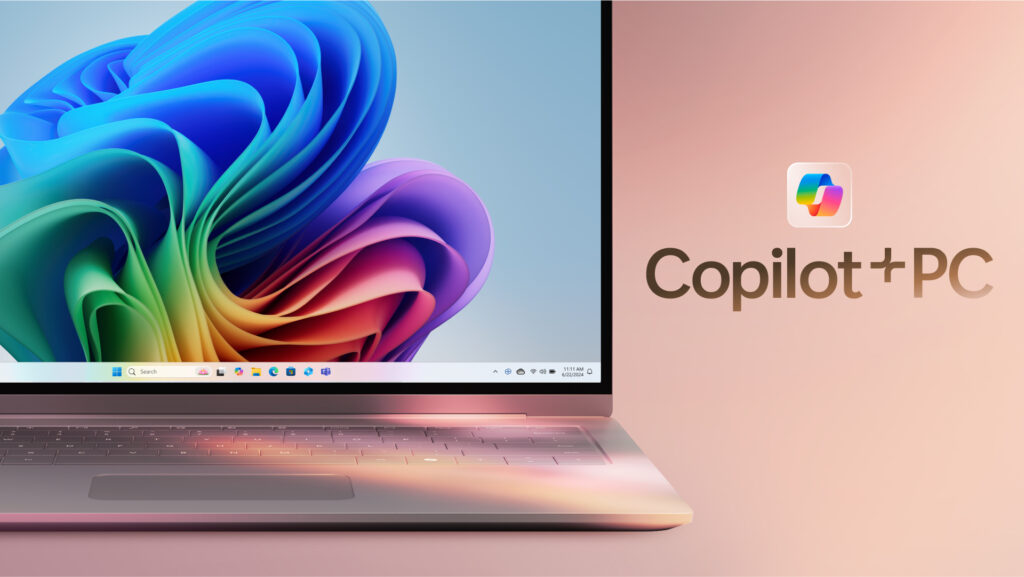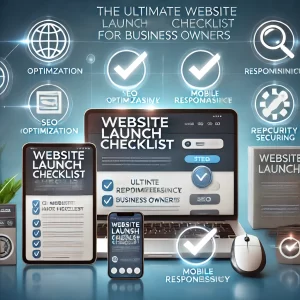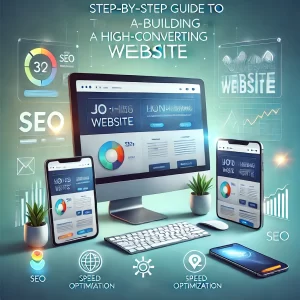

Artificial Intelligence (AI) has been a transformative force in technology, reshaping how we interact with devices and complete tasks. Recently, Microsoft introduced Copilot for Surface, leveraging AI to enhance productivity tools. Simultaneously, Apple continues to innovate with its AI offerings, creating a competitive landscape in the tech world. This article delves into the specifics of Microsoft Copilot, explores Apple’s AI advancements, and compares their impacts on productivity.
What is Microsoft Copilot for Surface?
Microsoft Copilot for Surface is a cutting-edge AI assistant designed to integrate seamlessly with Microsoft’s Surface devices. It aims to augment user productivity by providing intelligent suggestions, automating repetitive tasks, and offering contextual assistance across various applications.
Features of Microsoft Copilot
- Intelligent Suggestions: Copilot analyzes user behavior to offer timely and relevant suggestions. For instance, if you frequently send reports on Mondays, Copilot might suggest creating a template or automating parts of this process.
- Task Automation: Automates routine tasks such as email sorting, calendar management, and document formatting. Imagine reducing the time spent on mundane activities, allowing you to focus on more strategic tasks.
- Contextual Assistance: Provides help based on the context of the current task, whether in Excel, Word, or Teams. If you’re working on a budget in Excel, Copilot might suggest relevant formulas or past data trends.
Benefits of Using Microsoft Copilot
- Increased Efficiency: By automating mundane tasks, users can focus on more critical activities. This not only saves time but also reduces the cognitive load on employees, leading to better performance.
- Enhanced User Experience: The intuitive interface and proactive assistance make technology more accessible and user-friendly. Users don’t have to be tech-savvy to leverage powerful tools, as Copilot simplifies interactions.
- Seamless Integration: Works flawlessly with existing Microsoft applications and services. There’s no need to switch between different platforms or worry about compatibility issues, making it an all-in-one solution for productivity.
Use Cases of Microsoft Copilot
- Business Meetings: Copilot can assist in preparing agendas, sending reminders, and even transcribing meetings. This ensures that meetings are more productive and that follow-ups are managed efficiently.
- Project Management: By tracking project timelines, suggesting task assignments, and providing updates, Copilot keeps projects on track and stakeholders informed.
- Content Creation: Whether drafting a report or creating a presentation, Copilot can offer content suggestions, correct grammar, and format documents to a professional standard.
How Does Apple AI Compare?
Apple has been a formidable player in the AI space, with its intelligent assistants like Siri and robust machine learning capabilities integrated into its ecosystem. Here’s how Apple AI stands against Microsoft Copilot.
Key Features of Apple AI
- Siri Intelligence: Apple’s virtual assistant provides voice-activated commands, smart suggestions, and personalized experiences. Siri can set reminders, send messages, and answer queries, all through natural language processing.
- Machine Learning: Apple integrates ML across its devices to improve performance, security, and user personalization. For example, the Photos app uses ML to organize and identify people, places, and objects in your photo library.
- Ecosystem Synergy: AI features are deeply integrated across all Apple devices, ensuring a cohesive experience. Whether you’re using an iPhone, iPad, Mac, or Apple Watch, the AI-driven features work together seamlessly.
Benefits of Apple AI
- Personalized Experience: Tailors user interactions based on habits and preferences. For instance, Siri learns your routine and can suggest shortcuts to commonly performed actions.
- Security and Privacy: Emphasizes user data protection through on-device processing and robust privacy measures. Apple’s AI processes as much data as possible on the device itself, minimizing the amount of information sent to the cloud.
- Cross-Device Compatibility: Provides a unified experience across iPhones, iPads, Macs, and other Apple devices. Start a task on one device and seamlessly continue on another, thanks to features like Handoff.
Use Cases of Apple AI
- Health and Fitness: The Apple Watch uses AI to track health metrics, provide fitness recommendations, and even detect irregular heart rhythms.
- Home Automation: Through the Home app and Siri, users can control smart home devices with voice commands or automation rules, making everyday tasks more convenient.
- Photography and Editing: AI powers features like Deep Fusion and Smart HDR on iPhone cameras, enhancing photo quality automatically based on the scene and lighting conditions.
Microsoft Copilot vs. Apple AI: A Comparative Analysis
User Experience
- Microsoft Copilot: Focuses on productivity enhancements within the Microsoft ecosystem, offering detailed contextual assistance and automation. Its strength lies in the workplace, making it ideal for business environments where Microsoft Office is the primary toolset.
- Apple AI: Provides a holistic, personalized user experience across various applications and devices, emphasizing ease of use and privacy. Apple’s approach is more consumer-focused, enhancing everyday activities and entertainment.
Integration and Compatibility
- Microsoft Copilot: Best suited for users deeply embedded in the Microsoft ecosystem, particularly those using Surface devices and Office 365. Its features are optimized for business applications, from Word and Excel to Teams and Outlook.
- Apple AI: Ideal for users who are invested in Apple’s ecosystem, benefiting from seamless integration across multiple devices. Apple’s AI enhances everything from productivity to entertainment, all within a unified ecosystem.
Privacy and Security
- Microsoft Copilot: Implements strong security protocols but operates primarily through cloud services, raising some privacy concerns. While Microsoft ensures robust protection, the reliance on cloud-based processing might not be ideal for all users.
- Apple AI: Prioritizes on-device processing to ensure maximum privacy and data security. Apple’s stringent privacy policies and minimal cloud dependence make it a preferable choice for privacy-conscious users.
Performance and Reliability
- Microsoft Copilot: Known for its robustness in handling complex tasks and providing reliable support across enterprise applications. Its performance is optimized for business efficiency, handling large datasets, and supporting multiple users.
- Apple AI: Excels in delivering smooth and consistent performance across consumer devices, with a focus on user-friendly interfaces and reliability in everyday tasks. Apple’s hardware-software integration ensures that AI features perform seamlessly across devices.
Future Prospects of AI in Productivity Tools
The evolution of AI in productivity tools is just beginning. Both Microsoft and Apple are poised to make significant advancements, continually improving user experiences and expanding capabilities.
Microsoft’s Vision
Microsoft plans to enhance Copilot by integrating more advanced AI models, increasing the breadth of automation, and expanding compatibility with third-party applications. This includes more sophisticated natural language processing, deeper integration with cloud services, and broader support for various industries.
- Advanced AI Models: Future iterations of Copilot will leverage more powerful AI algorithms to provide even smarter suggestions and automation capabilities.
- Broader Automation: Expansion into more complex task automation, including project management, data analysis, and customer relationship management.
- Third-Party Integration: Opening Copilot to third-party developers could enable a wider range of applications and customizations, making it a versatile tool for various industries.
Apple’s Roadmap
Apple aims to further refine its AI features, focusing on deeper personalization, enhanced privacy measures, and broader integration across its expanding ecosystem. This includes continuous improvements in machine learning algorithms, more intuitive user interactions, and a stronger emphasis on privacy.
- Deeper Personalization: Future AI developments will focus on making user interactions even more personalized, predicting user needs with greater accuracy.
- Enhanced Privacy Measures: Apple will continue to lead in privacy, ensuring that AI features protect user data through advanced security protocols and on-device processing.
- Ecosystem Expansion: As Apple’s ecosystem grows, expect more integrated AI features across a wider range of devices and services, enhancing both productivity and entertainment.
Practical Applications of AI in Everyday Life
Enhancing Personal Productivity
- Microsoft Copilot: Automates email responses, schedules meetings, and manages documents, significantly reducing administrative burdens.
- Apple AI: Siri can set reminders, provide traffic updates, and manage smart home devices, streamlining daily routines.
Business and Enterprise Solutions
- Microsoft Copilot: Ideal for enterprise environments, offering tools like real-time collaboration in Teams, advanced data analysis in Excel, and automated reporting.
- Apple AI: While not as enterprise-focused, Apple’s AI can still support business activities through apps like Pages, Numbers, and Keynote, with added benefits of seamless device integration.
Education and Learning
- Microsoft Copilot: Assists in creating lesson plans, grading assignments, and providing feedback through educational tools like OneNote and Teams for Education.
- Apple AI: Enhances learning through interactive features on iPads, educational apps, and augmented reality experiences, making education more engaging and accessible.
Health and Wellness
- Microsoft Copilot: Integrates with health apps to track fitness goals, schedule medical appointments, and provide health-related reminders.
- Apple AI: Apple Watch and Health app offer comprehensive health tracking, personalized fitness recommendations, and proactive health monitoring features.
Real-World Case Studies
Microsoft Copilot Success Stories
- Case Study: Contoso Ltd. Contoso Ltd., a multinational corporation, implemented Microsoft Copilot to streamline their document management process. By automating repetitive tasks and providing contextual assistance, Copilot helped reduce the time spent on administrative tasks by 40%, allowing employees to focus on strategic initiatives.
- Case Study: Northwind Traders Northwind Traders, a global retail company, used Microsoft Copilot to enhance their project management workflows. Copilot’s ability to track project timelines, assign tasks, and provide real-time updates significantly improved project completion rates and stakeholder satisfaction.
Apple AI Success Stories
- Case Study: HealthTech Innovations HealthTech Innovations, a startup focused on health technology, leveraged Apple’s AI to develop a personalized health app. Using machine learning algorithms, the app provided tailored health recommendations and insights, helping users achieve their wellness goals. The app’s success was driven by its seamless integration with Apple devices and its user-friendly interface.
- Case Study: Creative Studios Creative Studios, a design and marketing agency, utilized Apple’s AI to enhance their creative workflows. Features like automated photo editing, smart content suggestions, and voice-activated commands enabled designers to work more efficiently and produce higher-quality content. The integration across Macs and iPads allowed for a smooth and collaborative creative process.
Challenges and Considerations
Privacy Concerns
- Microsoft Copilot: While Microsoft implements strong security protocols, the reliance on cloud-based services raises concerns about data privacy and potential breaches. Users need to be aware of the data being processed and stored in the cloud.
- Apple AI: Apple’s commitment to on-device processing and minimal data collection addresses many privacy concerns. However, users must still trust that their data is protected and used responsibly.
Learning Curve and Adoption
- Microsoft Copilot: Users may face a learning curve when adapting to new AI-driven features, especially in complex enterprise environments. Proper training and support are essential to maximize the benefits of Copilot.
- Apple AI: Apple’s focus on intuitive design minimizes the learning curve, but users must still familiarize themselves with new features and updates to fully leverage AI capabilities.
Cost and Accessibility
- Microsoft Copilot: While Copilot is included with Surface devices and Microsoft 365 subscriptions, additional features or third-party integrations may incur extra costs. Businesses need to evaluate the cost-benefit ratio of implementing Copilot.
- Apple AI: Apple’s AI features are built into its devices, but the premium price of Apple products may be a barrier for some users. Additionally, access to the latest AI capabilities often requires owning the latest hardware.
Conclusion
Microsoft Copilot for Surface and Apple AI represent the forefront of AI-driven productivity tools. Each offers unique strengths tailored to their respective ecosystems, providing users with powerful assistants to streamline tasks and improve efficiency. As AI technology continues to evolve, the competition between Microsoft and Apple will undoubtedly spur further innovation, benefitting users worldwide.
Microsoft Copilot excels in business and enterprise environments, offering robust tools for productivity and collaboration. Its seamless integration with Microsoft applications and focus on automating complex tasks make it an invaluable asset for organizations looking to enhance efficiency.
On the other hand, Apple AI shines in delivering a personalized and user-friendly experience across a wide range of consumer applications. Its emphasis on privacy, intuitive design, and seamless ecosystem integration make it a compelling choice for individuals and small businesses.
Ultimately, the choice between Microsoft Copilot and Apple AI depends on the user’s needs, existing technology ecosystem, and priorities regarding privacy and integration. Both platforms are set to drive the future of productivity, transforming how we work, learn, and live.
FAQs
What devices support Microsoft Copilot? Microsoft Copilot is designed for Surface devices and integrates seamlessly with Microsoft 365 applications.
How does Apple AI protect user privacy? Apple prioritizes on-device processing for AI tasks, minimizing data sent to the cloud and enhancing user privacy.
Can Microsoft Copilot be used with third-party applications? Currently, Microsoft Copilot is primarily integrated with Microsoft applications, but future updates may expand compatibility.
Is there a cost to use Microsoft Copilot? Microsoft Copilot is included with Surface devices and Microsoft 365 subscriptions, though some advanced features may require additional licensing.
How often are Apple AI features updated? Apple regularly updates its AI features with new iOS releases, introducing enhancements and new capabilities annually.
Which is better for business use: Microsoft Copilot or Apple AI? The choice depends on the existing technology ecosystem within the business. Microsoft Copilot is ideal for businesses using Microsoft products, while Apple AI is best for those within the Apple ecosystem.
What are the main advantages of Microsoft Copilot for Surface? Microsoft Copilot offers intelligent suggestions, task automation, and contextual assistance, significantly enhancing productivity within the Microsoft ecosystem.
How does Siri compare to other virtual assistants? Siri is known for its integration with Apple’s ecosystem, providing a seamless and personalized experience across Apple devices. Its privacy features and ease of use are notable advantages.
Can Apple AI be used for professional creative work? Yes, Apple AI features support professional creative work through tools like automated photo editing, content suggestions, and seamless device integration, making it suitable for designers and content creators.
What industries benefit most from Microsoft Copilot? Industries that rely heavily on Microsoft applications, such as finance, healthcare, education, and corporate sectors, benefit significantly from the productivity enhancements offered by Microsoft Copilot.





